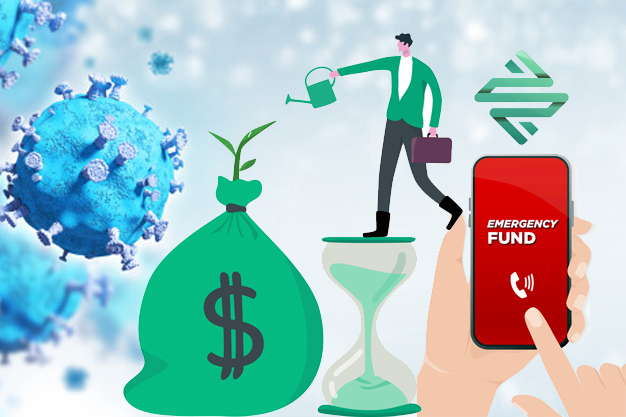- Have an Emergency Fund
They have been many who had either lost their jobs or had to shut/close down their business during the pandemic which lead to financial hardships in many families. For those who had kept a sum of money aside were able to continue paying their bills however many never bothered to maintain an emergency fund.
An emergency fund is basically 6 to 12 months of regular monthly expenses including loan payments in a separate savings bank account and/or a Liquid Fund, as a contingency plan. Make sure you never utilize this money for any other purposes other than for emergencies.
2. Overconfidence leads to poor financial decision-making
I have seen many people make poor financial decisions based on their overconfidence in everything. That nothing could possibly go wrong and every risk is worth taking by making financial decisions as if nothing could ever change — spending more, accumulating debt, selecting riskier investments and saving less. However we are now living the consequences of a pandemic which changes everything, and it has exposed the fragile financial house that had been built. We must be wiser.
3. Developing multiple streams of income is more important than we realized
During the pandemic those who lost their jobs but managed to keep their side business going got a stream of income coming in and those who lost their business but had their day job also managed to get an income coming in. The point here is that if we manage to create other sources of income by either investing , having a side business , real estate , freelancing etc then we reduce the risk of depending on just one stream of income when times are bad and allows us to save more , pay down debt faster , invest more when times are good. Hence , developing another stream of income is worth considering.
4. Cutting down on non-essentials
A lot of us tend to spend a huge percentage of our salary on non-essentials such as online shopping, eating out, purchasing luxury items, travelling etc. The pandemic has showed us that our basic “needs” are actually not that high and it is our “wants” that are driving up our cost of living. Hence it is possible to cut down on non-essential items and still maintain a decent lifestyle if you take the steps to change your mindset.
5. Have an objective towards your investments
When thinking of investing, it’s best to identify your financial goals upfront and divide them into short term and long term investment goals. Short-term goals should not contain risky investments like stocks or equity Mutual Funds. This will keep them insulated from downturns and you will not be dependent on the markets recovering in a short time frame. While long-term goals will get affected with the downturns, there will be enough time on your hands to wait for the markets to recover before you need that money. This way you can avoid the unnecessary stress that comes from investing just to make high returns.

